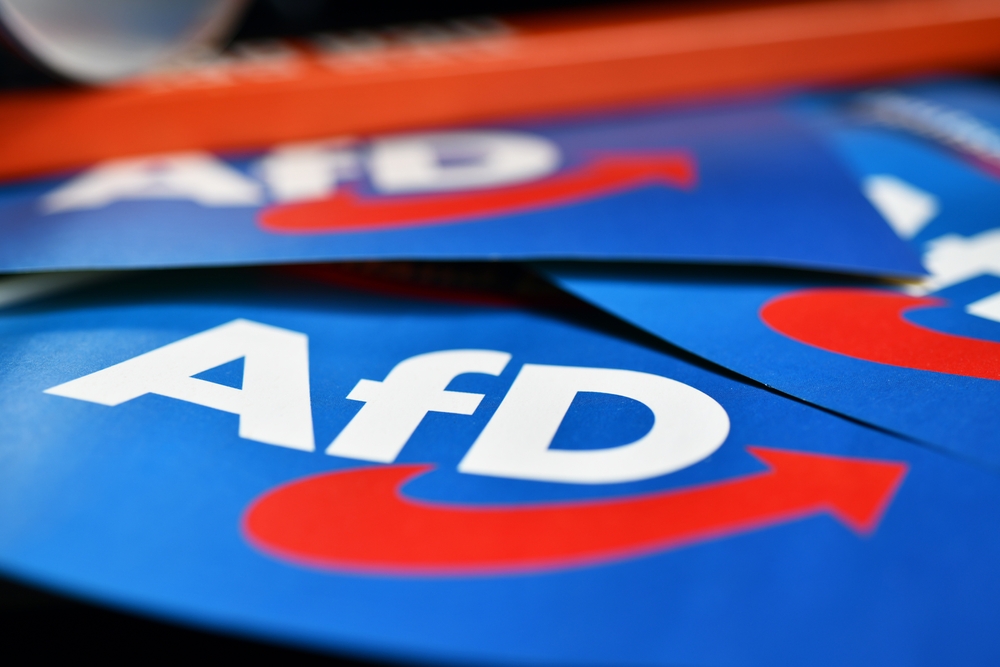German elections in the eastern states this autumn are likely to send shockwaves through the German political landscape, with the latest poll from Saxony showing the Alternative for Germany (AfD) leading at 32 percent. However, AfD performing well in these elections is mostly already baked in, and now the German political establishment is looking for ways to keep the party out of power, including what will likely be extremely unorthodox alliances.
The real twist in these polls is the introduction of the newly formed leftist BSW party, led by Sahra Wagenknecht. In the poll from Saxony, the party is in third place with 15 percent. Until recently, Wagenknecht’s party did not even exist.
The Christian Democrats (CDU) are in a close second behind the AfD. If the elections were held now, the only possible coalitions would be AfD and BSW, AfD and CDU, and CDU and BSW. In such a scenario, any governing coalition in Saxony would only need 44 percent of the vote to govern, as most parties would not make the cut to enter parliament.
Why are only these three coalition combinations possible? The polling continues to reveal the historic crash of left-liberal parties, with the Greens at 5 percent, the Social Democrats at 5 percent, and the Free Democrats at a measly 2 percent. With a 5 percent threshold, all of these parties are threatened with being voted entirely out of parliament, which would be a catastrophe for the governing coalition parties.
As a result, the CDU will have limited options about whom to work with when all the votes are counted, at least according to current polling.
It is true that the BSW is considered so far to the left that any coalition with it will immediately harm CDU’s credibility. Furthermore, on key issues such as the war in Ukraine, the CDU and BSW parties are diametrically opposed, with BSW promoting an immediate ceasefire. However, the CDU and BSW coalition is the most likely outcome if both parties can secure enough votes, as the CDU will be under enormous pressure to choose this scenario, even if the CDU and AfD are closer ideologically on a range of domestic issues.
For starters, CDU has ruled out any cooperation with the AfD, and in fact, some of its members are actively working to ban the AfD party entirely.
Secondly, the BSW and CDU have not ruled out cooperation at the state level, according to German news outlet MDR. For example, in the eastern state of Thuringia, polling shows a similar situation as in Saxony, with the AfD and the CDU leading, while the BSW has soared higher, reaching 21 percent. There, the BSW regional leader Katja Wolf ruled out a coalition with the AfD but said alliances with other parties are possible.
Sonntagsfrage zur Landtagswahl in Thüringen • Infratest dimap / MDR: AfD 28 % | CDU 23 % | BSW 21 % | DIE LINKE 11 % | SPD 7 % | GRÜNE 4 % | Sonstige 6 %
➤ Verlauf: https://t.co/ovEBl1Hvt3
🗓️Nächste Landtagswahl: 1. September 2024 #ltwth pic.twitter.com/jWmNQRN4wQ
— Wahlrecht.de (@Wahlrecht_de) June 18, 2024
“It must be possible to talk and reach compromises with all democratic parties,” said Wolf.
BSW is well positioned to serve as a “spoiler” party against the AfD, just as many on the left had hoped for. The CDU, in turn, will work with the far-left party as needed, and the media will likely be in place to support its decision. Importantly, the German political establishment, including the CDU, will not have to compromise on key foreign policy issues, as the BSW will have little influence on the course of the war in Ukraine at the local state level. The war will continue, open borders will remain in place, and the AfD will be contained.
At least, that is the plan.
Of course, even a shift of a few points in either direction could mean a BSW and CDU coalition is no longer possible, leaving AfD a window to enter a potential coalition government. However, there are still many months to go until elections are held. The AfD could lose or gain support in the east, although it appears to have hit a temporary ceiling in the east over the last year.
If the EU elections were any barometer, the media and the government will likely wait until the final two months of the state elections to spring investigations, launch arrests, and wage a massive media campaign against the right. Despite this last media onslaught against the AfD, it appeared to have little effect in the east of Germany, where the AfD rose to be the number one party in the country.
The AfD is hoping to break the firewall. It is up to voters in the east if this will ever happen.






